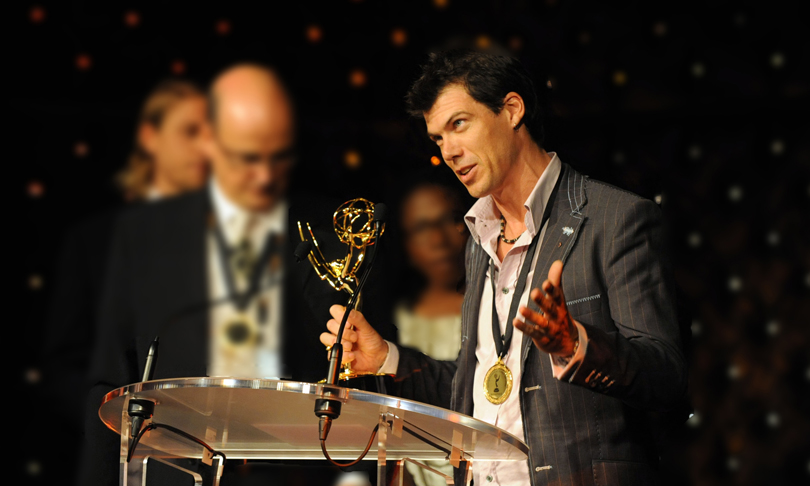Emmy Award-winning producer Marcus Gillezeau comes to Adelaide next month to help aspiring filmmakers understand new technologies as an opportunity rather than a threat.
Making film (and money) in the internet age
Marcus Gillezeau started working in film and TV well before most people were familiar with the internet. But despite the fact he’s not in the ‘digital native’ age bracket – his first feature film credit is from the late ’80s when he was 18 years old – he has always embraced new media.
Get advice from Marcus in person when he delivers his keynote address, entitled Flipside of the Future, at the New Screenmakers Conference.
The conference will be held July 18 & 19 at the Mercury Cinema.
“The decision to throw ourselves and our company into cross-platform or multimedia production really came about from effectively just a great curiosity and interest in the new mediums that were evolving,” he says.
As soon as Marcus gained an understanding of the internet in the early ’90s (well before most of us could even find the “any” key on our Commodore 64) he began to see its potential for film and television.
While he acknowledges that producing content across several platforms to create an interactive “storyworld” also makes good business sense and is a personal passion of his, it’s the ability to deepen the audience’s engagement with a story that most compelled him to look further.
In 1999 Marcus and his company Firelight Productions embraced an all media approach while working on a documentary called Little Dove, Big Voyage that saw the crew out at sea filming on a tall ship for four months.
“[I] thought surely we can do something else with the resources, time and assets,” says Marcus.
“So we launched a very rich media website at the very beginning of when video was available online. And we then did a super-rich interactive DVD and a narrow band site and a broadband site and a full-length documentary.
“…when we were out on the tall ship the audience was able to write to us… we were making videos on the ship, compressing them and uploading them and they were watching them all over the world. I just thought, I can’t believe this – I’ve created a micro TV station on a 15th Century tall ship.
“We had a feedback loop with the audience in real time that ultimately influenced the way I wrote that documentary and then when the show went to air we beat the normal ratings for that slot by 20 per cent, by 200,000 people.”
This early success in the multimedia space has been followed by much more, including the multi-award winning, critically-acclaimed feature documentary Storm Surfers 3D, which is accompanied by a game, soundtrack, website, webisodes, ebook and two prequels.
Building the world of a story through other mediums and involving audiences ahead of a film or TV show’s release has clearly proven very successful for Marcus. In July he will be in Adelaide to deliver the keynote address at the New Screenmakers Conference – walking an audience of local emerging filmmakers through the how and why of successful content production in the age of YouTube, Kik, Vine and Facebook.
While his contemporary experience is large scale, he says the concepts are easily adapted for those working on a start-of-career budget.
“Specialisation is only afforded when you have sufficient budget and up to that point it is a necessity to multi-task,” he says. “The best advice I have in that sense is if you are going to be do several jobs on a production you’re going to need to have a lot of time, because you can’t do them all at once.
“It can certainly appear daunting – the idea that once you’ve created your story you need to adapt it across multiple platforms… The answer that comes back which is a really simple thing is that a page on Facebook is a website. And you don’t need to know any coding to set that up, an account on twitter doesn’t need any coding, an account on Instagram does not need any coding.
“By the time you’ve put those three together and it’s set up so that one is feeding the other… you have effectively created a presence on the internet that is easily equal to creating a website.”
And while Marcus says some in the Australian industry, particularly film distributors, might not yet be fully taking advantage of cross-platform potential – there are plenty of leaders like SBS and ABC who will fund and innovate in this realm.
Hearing his perspective – a positive in a conversation often dominated by fear-mongering – will make the future seem a little brighter for those Adelaide filmmakers sitting in the audience at the conference next month.




